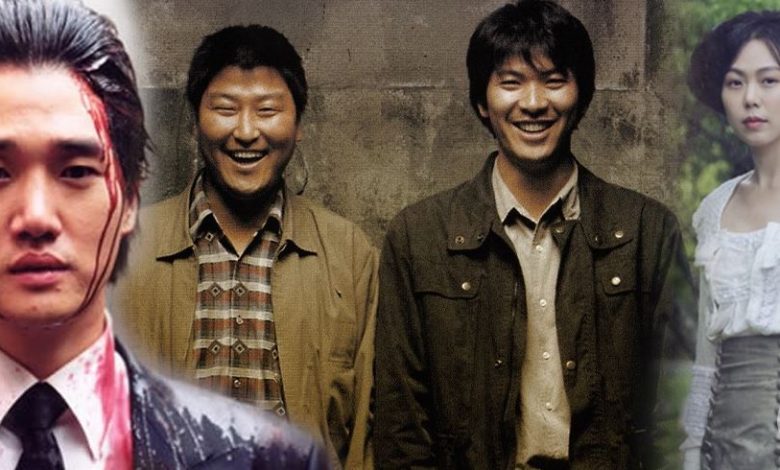
THRILLER KOREAN MOVIES MOVIE
The movie is dark, bleak, and the way the detective moves through the rainy, gloomy city calls to mind a Se7en sensibility. A killer is terrorizing Seoul, cutting up his victims with surgical precision and leaving their parts scattered around the city.

THRILLER KOREAN MOVIES SERIES
Tell Me Something (1999)Īnother pioneering film in the Korean film wave, Chang Yoon-hyun’s Tell Me Something is an early entry in the regional cinema surge that incorporates one of the strongest elements of the country’s genre cinema: crime! South Korea has an outstanding tradition of intense crime thrillers, and Tell Me Something follows a disgraced detective tasked with solving a series of terrible murders. It also kick-started a five-movie-deep franchise, which includes standout entries like Memento Mori and Voice. Besides just being a tale of haunts, Corridors is also a critique of the authoritarian structures within the education system, a hangover from the years South Korea spent under military dictatorship. Corridors tells the story of a highly regimented all-girls school that’s terrorized by the ghost of a dead student who returns every three years to wreak havoc on the staff. President Kim Dae-jung pledged to abolish censorship practices when he ran for office in 1997, and upon his election in 1998 started following through on that promise, implementing a policy of “provide support, but do not interfere.” A rise in violent genre films followed. Whispering Corridors is an important entry in modern Korean horror because it was part of the first wave of commercially successful films that catalyzed the regional cinema boom at the turn of the 21st century. Be advised: Things get pretty brutal in here. Consider it your starter pack for the South Korean horror experience, and perhaps your introduction to some of the boldest voices in Asian film. Perhaps Parasite has ignited your interest in this field? If you’d like to know more about where some of the best horror films in the world are coming from, below is a 15-film tour of how genre cinema fits into the Wave. Thus, the boom in Korea’s cultural economy was born, igniting the Korean Wave. And while film policies did slowly become more liberal over the years, it took a political regime change in the late 1990s to finally shove censorship out the door for good. There were also very specific guidelines around how many foreign films could be imported. But what happened in the last 20 years to spur such a cinematic renaissance? Well, the laws around film censorship in Korea were dramatically altered, allowing filmmakers to create without fear of government meddling.īack in 1962, the country’s constitution included an article that said “censorship of films and entertainment to defend public morals and social ethics is permissible.” Strict rules were put in place dictating how many films a company could produce each year, and what was appropriate to show people at all. And if you’re a horror-movie fan, they’re the crop of directors par excellence when it comes to executing the genre-blending style that defines this modern wave of critically acclaimed art-house horror.ĭirectors du jour like Ari Aster and Julia Ducournau have cited South Korean filmmakers when discussing their most impactful cinematic contemporaries, and the immaculate art direction of creatives like Park - paired with a heavy emphasis on mood and twisted family dramas - can be seen bleeding through the screen in movies like Raw and Hereditary. Alex Jung has pointed out, the country’s previous 0-for-everything streak with the Hollywood establishment was “a curious historical omission (embarrassing more for the Academy than it is for Korea) when you consider the country’s filmmaking stature in the world.” Park Chan-wook, Na Hong-jin, Kim Jee-woon, Bong Joon-ho, Lee Chang-dong, and so many more have spent the last 20 years turning out some of the most adventurous, aesthetically arresting cinema in the world. That changed this year when the country’s 31st attempt, in the form of Bong Joon Ho’s Parasite, ended up being the surprise big winner at last night’s Oscars. Prior to this most recent awards season, South Korea had submitted 30 titles for Best Foreign Film consideration at the Academy Awards over the years, and had come up empty 30 times.

This article was originally published in 2019 and has been updated in light of Parasite ’s big wins at last night’s Oscars. Photo: 20th Century Fox/Next Entertainment World


 0 kommentar(er)
0 kommentar(er)
